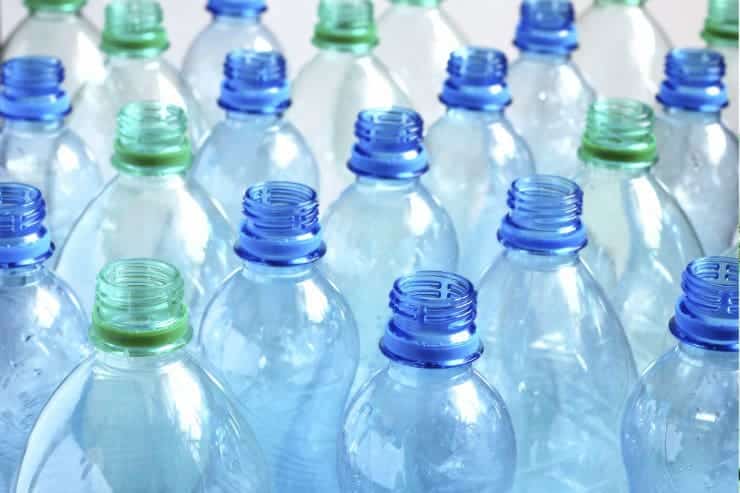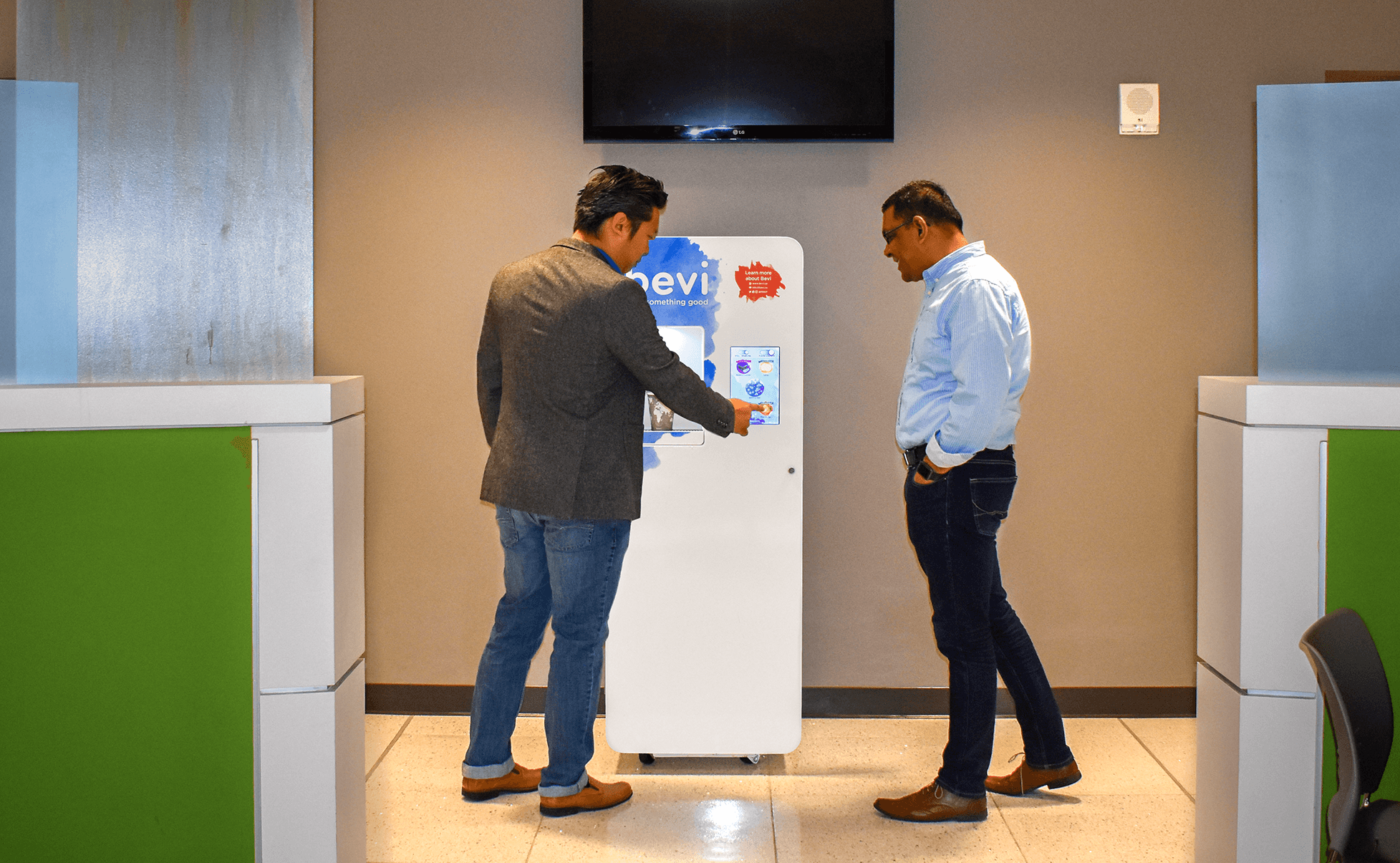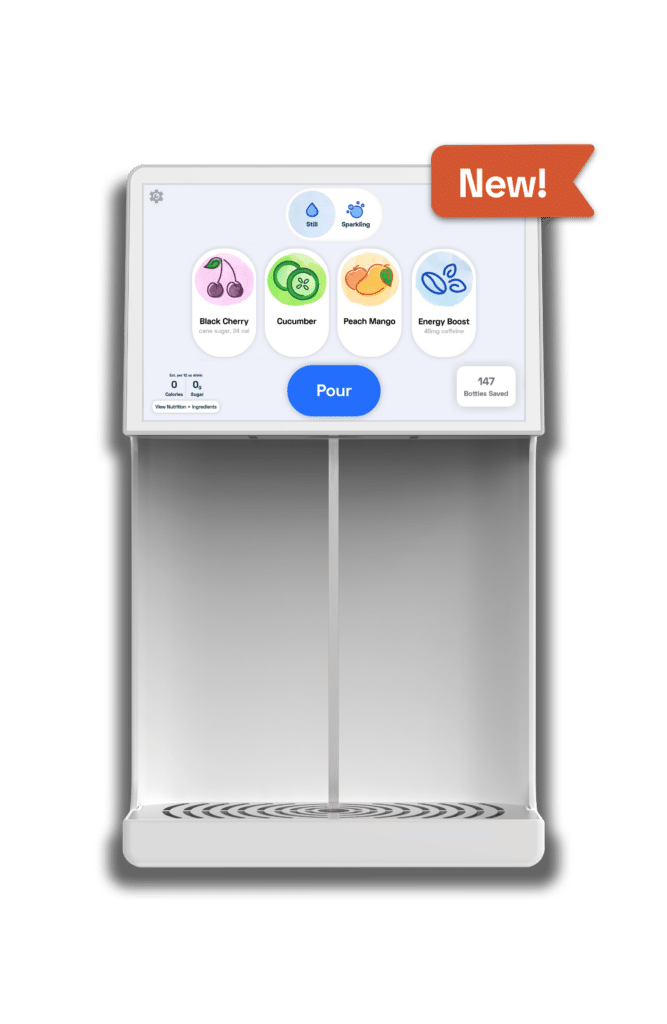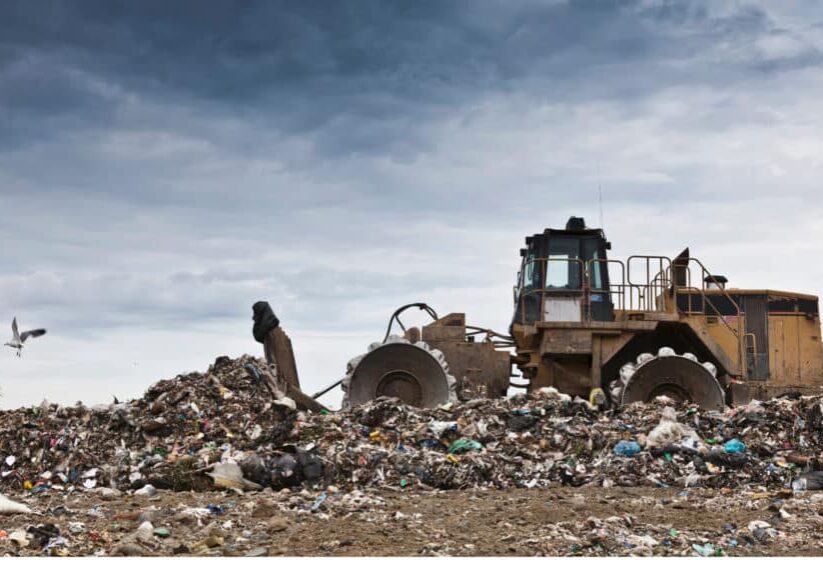Reduce, reuse, recycle. The three Rs roll off our tongues as a set. But do we walk the walk for all that talk?
When it comes to bottled water, recycling gets a lot of attention. And while recycling every bottle we open will reduce the amount of plastic in landfills, that’s only part of the solution. Unfortunately, we’re opening more and more bottles every year and the impact on the environment of creating, transporting, and even recycling all those bottles continues to intensify.

Image Source:
Impact before recycling: the case for reduce
The water bottle you hold in your hands today made its mark long before crossing paths with you. Its creation alone required two precious and limited resources: water and oil.
That you need water to create bottled water is no secret. But what might surprise you is that an estimated 3 liters of water flow into the making of each 1 liter water bottle. Groundwater plays an important role in oil drilling and oil is a key component of plastic. Water also takes part in manufacturing the bottle’s paper labels. Ultimately, there’s more water in your water bottle than what passes through your lips.
And then there’s the oil. To satisfy the annual demand for bottled water, in the U.S. alone, requires 17 million barrels of oil, or enough to power a million cars for a year. Then the bottles must be transported. Often, the water bottle you grab on your travels has traveled thousands of miles to get to you, a journey that requires more oil than it takes to make the bottle in the first place.
Impact during recycling: the case for reuse
Whether you recycle it or not, that bottle will continue to make its mark after you and it part ways.
Tossing it in the trash will send it off to a landfill, with almost 70% of all other water bottles in the U.S. The bottle will outlast all of us in that landfill, taking more than 1,000 years to biodegrade.
Tossing it in the recycle bin will give it a chance at a new life. But even that comes with a cost. A water bottle’s afterlife often takes it to China where it is transformed into clothes, toys, carpets or auto parts and then shipped back. Although new plants opening in the U.S. have reduced the cost of a recycled bottle’s round-trip journey, the impact is still devastating.
The overall impact
While recycling does lessen the environmental impact of the plastic water bottle, unfortunately it doesn’t go far enough. To be recycled, the bottle has to be made and then remade, wasting precious natural resources (and still releasing unnecessary chemicals into the world).
Which brings us back to the three Rs. Recycle, of course. But whenever possible, bring along your own reusable water bottle or let a plastic one hang around a bit longer so that you are reducing and reusing as well!

Learn more about the afterlife of a plastic water bottle.





